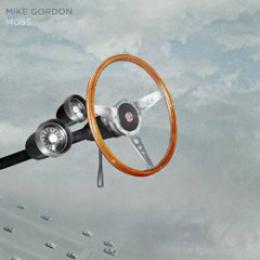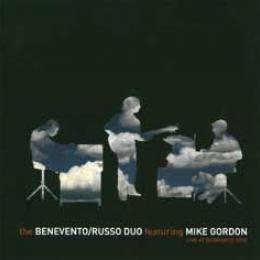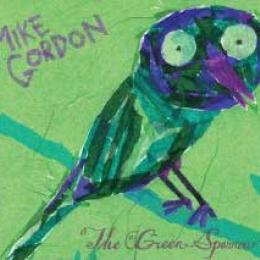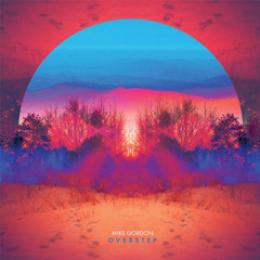Mike Gordon - Moss CD
$14.98
Over the past decade, Mike Gordon has become an increasingly prolific solo artist, and Moss is an exciting addition to his growing catalog. It is the third solo album from the Phish bassist, following Inside In (2003) and The Green Sparrow (2008). During this same time frame, he also cut a highly entertaining pair of albums - Clone (2002) and Sixty Six Steps (2005) - with guitarist extraordinaire Leo Kottke. In other words, Gordon's cup is overflowing with music on many different fronts.
Moss comes only two short years after The Green Sparrow, and about half of its songs stem from the same 50-song burst of creativity that seeded that album. They join songs of more recent vintage, all of which were revised, reworked and morphed by the tireless Gordon in spontaneous but exacting fashion.
Gordon had a number of goals in mind when it came to making this album. He wanted the songs to be simpler and more accessible, and he also wanted to spend more time writing and revising them. ("Just like John Prine said, 'You don't write, you edit,'" he quips.) He also wanted to allow more focus to be placed on the actual singing.
In addition, Gordon wanted to let the album "be more true to itself, where it dictates what it needs, like by picking songs that seem to fit and ignoring ones that don't." The powers-that-be in this album's spirit world apparently decreed that Gordon's bass guitar should function more like a lead instrument. And so he complied. Fans who appreciate Gordon's role as the ever-inventive low-end anchor in Phish will be delighted to hear how central his bass work is on Moss.
"The driving force is the bass," says Gordon. "Not in terms of soloing, but in terms of having unique rhythms. Sometimes I tell people that the lead instrument on Inside In was pedal steel and the lead instrument on The Green Sparrow might've been electric guitar, and the central focus on this album is bass."
Indeed, Gordon's bass lines wind through these songs like strands of DNA, determining the forms that the surrounding instruments and overall composition take. This is not an entirely far-fetched comparison, as lyrical references to double helixes, spirals and corkscrews - some of the shapes that DNA and other bits of cellular material assume - run through these songs, especially the dreamier, more otherworldly ones.
A four-song sequence, comprising "Flashback," "The Void," "Got Away" and "Spiral," goes places no songs have gone before. They are uniquely Mike. You might suppose these soundscapes are musical evocations of particularly fanciful sights and sounds experienced while on hallucinogenic vision quests.
"There's a sort of psychedelic theme, and I've never tripped before," he acknowledges. "But I thought that's okay because you don't always have to write from your own character, necessarily. I have an appreciation for what consciousness can do, though my way of getting there has been via different avenues."Moss, in fact, is really more about the limitless places one's imagination can visit on its own. Gordon has always been a dreamer and, by his own admission, an outsider, and this combination has made for a very colorful interior life. The songs on Moss are often accessible but also highly original, musing on matters of human consciousness and psychology in ways that are as listenable as they are unusual.
Words that crop up when Gordon discusses the songs' themes include creativity and emptiness, observation and engagement, presence and absence. Referring to "Horizon Line," he notes, "If I had to consolidate the sentiment into one word, it would be displacement. That whole feeling of talking to someone but being elsewhere. The concept is, 'I'm talking to you but my mind is walking across the most distant part of my peripheral vision, where I'm actually walking on the horizon line, way out there.' The theme of displacement weaves through all these songs."
The fascinating thing is that he's able to evoke concepts as ethereal as this not just lyrically but musically. Songs like "Spiral" and "The Void" detour into evocatively abstract, meterless areas of sound with a mysterious, textural richness. On the other hand, such numbers as "Can't Stand Still" and "Fire From a Stick" - both joyfully devoted to muses, mentors and the ecstatic wellspring of inspiration - are infectious, danceable, upbeat and viscerally planted in the here and now.
Three years in the making, Moss is the later chapter in an ongoing collaboration between Gordon and his creative sounding board, Jared Slomoff. Gordon, of course, sings and plays bass, as well as a variety of other instruments, including guitar, piano and drum programming. Slomoff co-produced and contributed some singing, playing and programming as well.
Drummers Joe Russo and Doug Belote crop up throughout the album, and other guests include organist Marco Benevento and percussionist Ken Lovelett, who brought a few intriguing instruments of his own invention to Gordon's studio. Mike's bandmates in Phish - keyboardist Page McConnell and drummer Jon Fishman also make appearances.
Released 10.19.2010
Moss comes only two short years after The Green Sparrow, and about half of its songs stem from the same 50-song burst of creativity that seeded that album. They join songs of more recent vintage, all of which were revised, reworked and morphed by the tireless Gordon in spontaneous but exacting fashion.
Gordon had a number of goals in mind when it came to making this album. He wanted the songs to be simpler and more accessible, and he also wanted to spend more time writing and revising them. ("Just like John Prine said, 'You don't write, you edit,'" he quips.) He also wanted to allow more focus to be placed on the actual singing.
In addition, Gordon wanted to let the album "be more true to itself, where it dictates what it needs, like by picking songs that seem to fit and ignoring ones that don't." The powers-that-be in this album's spirit world apparently decreed that Gordon's bass guitar should function more like a lead instrument. And so he complied. Fans who appreciate Gordon's role as the ever-inventive low-end anchor in Phish will be delighted to hear how central his bass work is on Moss.
"The driving force is the bass," says Gordon. "Not in terms of soloing, but in terms of having unique rhythms. Sometimes I tell people that the lead instrument on Inside In was pedal steel and the lead instrument on The Green Sparrow might've been electric guitar, and the central focus on this album is bass."
Indeed, Gordon's bass lines wind through these songs like strands of DNA, determining the forms that the surrounding instruments and overall composition take. This is not an entirely far-fetched comparison, as lyrical references to double helixes, spirals and corkscrews - some of the shapes that DNA and other bits of cellular material assume - run through these songs, especially the dreamier, more otherworldly ones.
A four-song sequence, comprising "Flashback," "The Void," "Got Away" and "Spiral," goes places no songs have gone before. They are uniquely Mike. You might suppose these soundscapes are musical evocations of particularly fanciful sights and sounds experienced while on hallucinogenic vision quests.
"There's a sort of psychedelic theme, and I've never tripped before," he acknowledges. "But I thought that's okay because you don't always have to write from your own character, necessarily. I have an appreciation for what consciousness can do, though my way of getting there has been via different avenues."Moss, in fact, is really more about the limitless places one's imagination can visit on its own. Gordon has always been a dreamer and, by his own admission, an outsider, and this combination has made for a very colorful interior life. The songs on Moss are often accessible but also highly original, musing on matters of human consciousness and psychology in ways that are as listenable as they are unusual.
Words that crop up when Gordon discusses the songs' themes include creativity and emptiness, observation and engagement, presence and absence. Referring to "Horizon Line," he notes, "If I had to consolidate the sentiment into one word, it would be displacement. That whole feeling of talking to someone but being elsewhere. The concept is, 'I'm talking to you but my mind is walking across the most distant part of my peripheral vision, where I'm actually walking on the horizon line, way out there.' The theme of displacement weaves through all these songs."
The fascinating thing is that he's able to evoke concepts as ethereal as this not just lyrically but musically. Songs like "Spiral" and "The Void" detour into evocatively abstract, meterless areas of sound with a mysterious, textural richness. On the other hand, such numbers as "Can't Stand Still" and "Fire From a Stick" - both joyfully devoted to muses, mentors and the ecstatic wellspring of inspiration - are infectious, danceable, upbeat and viscerally planted in the here and now.
Three years in the making, Moss is the later chapter in an ongoing collaboration between Gordon and his creative sounding board, Jared Slomoff. Gordon, of course, sings and plays bass, as well as a variety of other instruments, including guitar, piano and drum programming. Slomoff co-produced and contributed some singing, playing and programming as well.
Drummers Joe Russo and Doug Belote crop up throughout the album, and other guests include organist Marco Benevento and percussionist Ken Lovelett, who brought a few intriguing instruments of his own invention to Gordon's studio. Mike's bandmates in Phish - keyboardist Page McConnell and drummer Jon Fishman also make appearances.
Released 10.19.2010





